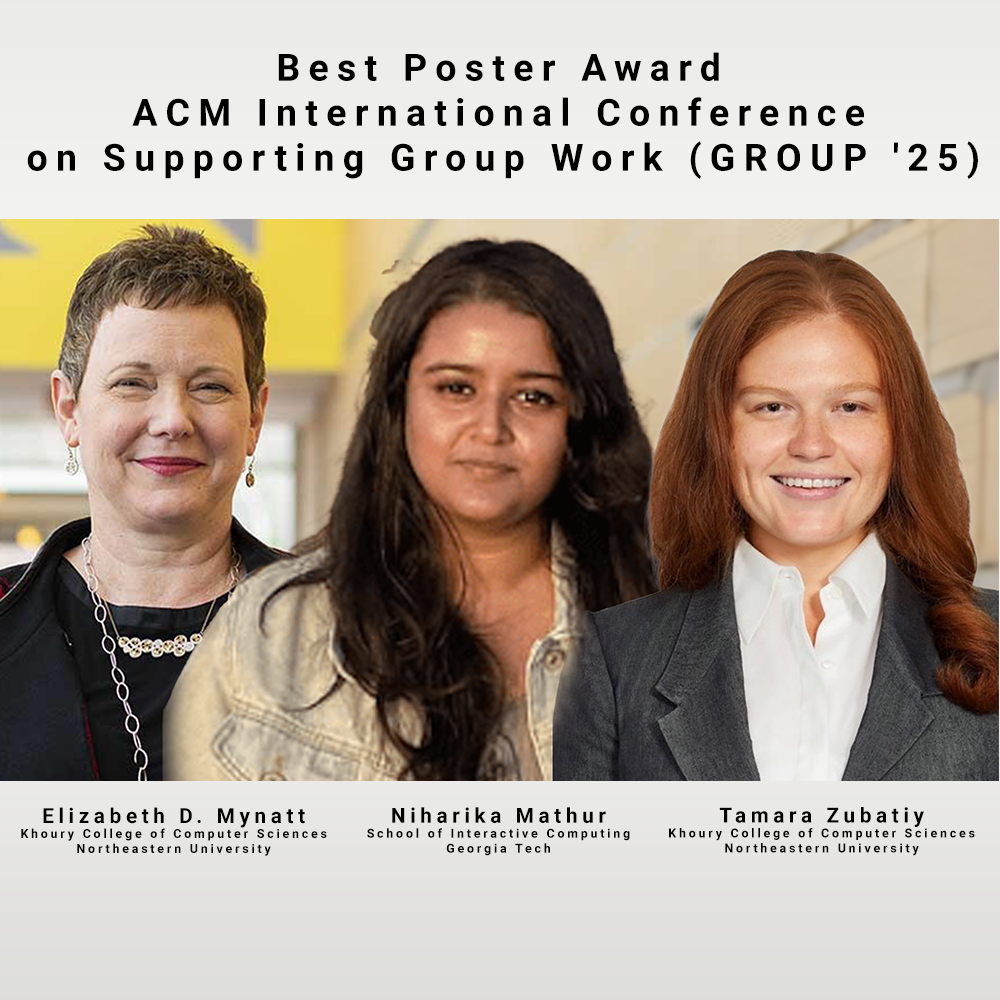AI-CARING Researchers Win Best Poster Award at ACM GROUP Conference
Jan 21, 2025

Congratulations to Niharika Mathur, Tamara Zubatiy, and Beth Mynatt for being awarded the Best Poster Award at the ACM International Conference on Supporting Group Work (GROUP) on their paper, “A Research Through Design Study on AI Explanations for Collaborative Everyday Tasks for Older Adults Aging in Place,”
Their paper dives into the critical role of explainability in AI systems designed to support older adults aging in place. The team emphasizes creating AI explanations that are personalized, collaborative, and user-centered, particularly for older adults and their care partners.
By employing the Research through Design (RtD) methodology, they explored the diverse needs, motivations, and goals of users in the home setting. Their work proposes a shift in the AI research community—moving from algorithm-focused explanations to user-centered, collaborative design approaches. This includes techniques such as Speed Dating studies and Co-Design activities, which engage users directly in the design process, making explanation a shared, iterative task between AI systems and users.
Niharika Mathur, a Ph.D. student in Human-Centered Computing (HCC) at Georgia Tech specializing in Human-Computer Interaction (HCI), specializes in the design of conversational AI systems, such as smart speakers like Google Home. Her research focuses on how these technologies can be better designed to improve human-AI interaction and support everyday tasks.
Tamara Zubatiy, a Postdoctoral Research Associate, is also recognized as part of the 2025 Forbes 30 Under 30 list. She is a researcher at the Everyday Computing Lab, directed by Professor Beth Mynatt, which focuses on technology's role in improving people's daily lives, particularly for older adults and their caregivers.
Beth Mynatt, former Georgia Tech faculty and now Dean of Khoury College of Computer Sciences at Northeastern University, has made significant contributions to the field of Human-Computer Interaction (HCI) and continues to lead transformative research on the design and implementation of technology for everyday tasks.
The team’s research advocates for a fundamental shift in the focus of Explainable AI (XAI) toward the specific requirements of users, thus improving the accessibility and usability of AI systems for aging populations.
For those interested in exploring this work further, the full paper is available via the DOI: https://dl.acm.org/doi/10.1145/3688828.3699640. You can also download the PDF directly here: Read the Full Paper.
Once again, congratulations to Niharika, Tamara, and Beth for this well-deserved recognition of their innovative and impactful research!
